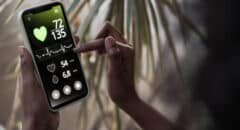
What do blueberries, spinach and dark chocolate have in common? They're all rich in flavonoids, the chemical compounds found in plants that give them color – and medicinal powers. Research shows flavonoids provide a wide range of health benefits, from fighting cancer and lowering the risk for heart disease to preserving brain function. They've even been used to fight wrinkles.
Why are flavonoids good for us?
"The key reason flavonoids are good for us is they have anti-inflammatory effects and are antioxidants," says Kristina Petersen, an assistant professor in the department of nutritional sciences at Texas Tech University in Lubbock.
Antioxidants help fight inflammation and aging. Flavonoids also have properties that could help prevent blood clots. And a study published last year in the American Heart Association journal Hypertension suggests flavonoids in foods such as berries, red wine, apples and pears may influence gut bacteria in a way that lowers blood pressure.
Because of this, flavonoids play a central role in the Mediterranean, DASH and MIND diets, the eating patterns most recommended by heart and brain health experts. While there are some differences, all three place a heavy focus on flavonoid-rich fruits, vegetables, nuts and beans.
But most people in the U.S. aren't getting enough flavonoids, largely because they don't eat the recommended daily allowance of fruits and vegetables. Federal dietary guidelines recommend adults eat 1.5-2 cups of fruit each day and 3-4 cups of vegetables. But only 1 in 10 U.S. adults eat that many vegetables and only 1 in 8 eat a sufficient amount of fruit, according to data from the Centers for Disease Control and Prevention.
RELATED: 10 Delicious Foods That Can Strengthen Your Heart
How to add more flavonoids to your diet
The good news is, flavonoids are found in such a wide range of fruits, vegetables and other foods that it shouldn't be hard to fit them into your diet, Petersen shares. They're found in berries of all kinds, cherries, apples, grapes, leeks and leafy green vegetables such as spinach, romaine lettuce and kale. Like garlic and onions? You'll find them there as well. Soybeans? They've got them, too.
Petersen recommends eating a wide range of flavonoid-rich foods for the greatest nutritional value. "The goal is to eat a variety of fruits and vegetables of different colors. Eat a rainbow," she says.
If you're not used to eating a lot of produce, you can build it into your diet slowly, she adds.
"Eat one more piece of fruit per day," Petersen suggests. "Put one more vegetable on your plate at dinner time. Trying to overhaul your entire diet can be difficult, so start by making small changes."
Eating fresh, whole foods is the best way to get the flavonoids you need. But it's not the only way.
If fresh fruits aren't available, frozen berry mixes are a good alternative. Fruits and vegetables that are flash-frozen retain high levels of nutrients, store easily and can add variety to the plate even when out of season.
You can also drink flavonoids. Beverages such as red wine and tea, especially black or green tea, are good sources. Fruits and vegetables can be squeezed into juices or smoothies as well, but Petersen says juicing is less than ideal because it removes a lot of beneficial fiber.
However, she says, "if that's the only way you can get them into your diet, then do it."
And, of course, dark chocolate is a sweet way to add flavonoids to your day.
RELATED: 7 Reasons Why You Should Eat Dark Chocolate
There's no need to force yourself to eat foods you don't like in order to get your flavonoid fix. "We never have success in telling people to eat things they don't like," Petersen adds. "There are so many you can choose from," so eat the ones you like. And don't be afraid to try new ones.
Anyone already following the Mediterranean, DASH or MIND diets – or any high-quality plant-based diet – shouldn't have to worry.
"The goal is to consume a healthy dietary pattern," Petersen concludes. "And if we're doing that, we're going to be consuming enough flavonoids."









